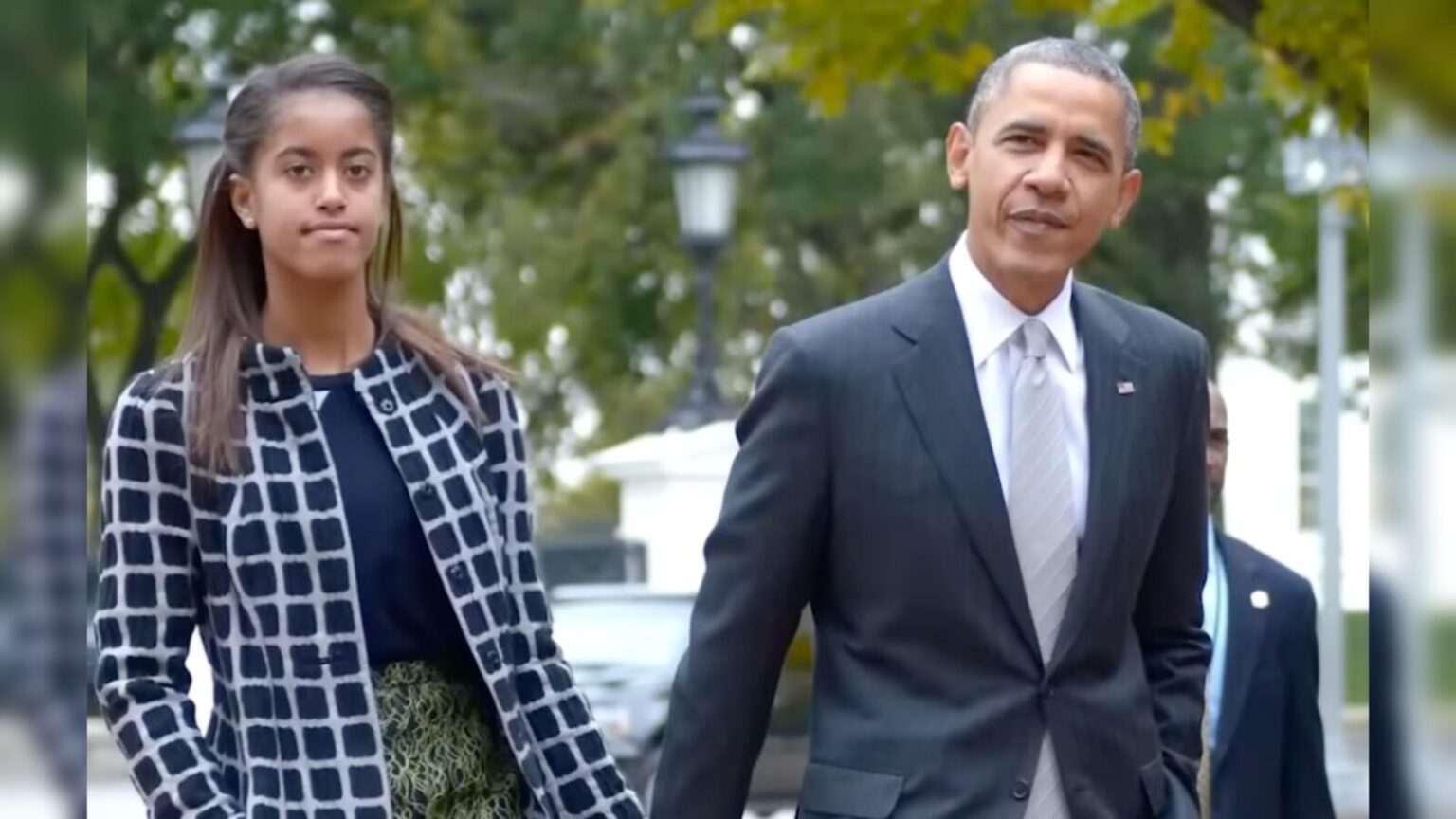Malia Obama, the eldest daughter of former President Barack Obama, has made a significant decision regarding her professional identity as she embarks on a career in the entertainment industry. Recently, it was reported that she has opted to drop her last name and is now being credited as “Malia Ann” in film projects, including her directorial debut short film titled “The Heart.” The choice appears to be an intentional effort to carve out her own identity separate from the legacy of her famous parents, particularly in a field where recognition is often intertwined with familial connections.
This decision was notably highlighted during Barack Obama’s appearance on the “Pivot” podcast, where he discussed his daughter’s choice in detail. He explained that her film had made its way to prestigious film festivals like Sundance, but she deliberately chose not to use “Obama” in the credits. This move, according to Barack Obama, reflects a deep-seated sensitivity in Malia and her sister regarding how they navigate their public personas. The former president described their approach to this issue as “stubborn,” indicating that the desire for personal distinction is strong in his children.
In his candid remarks, Barack Obama also provided insight into the challenges that come with such decisions. He acknowledged that while Malia may believe that changing her name would help her escape the shadow of her parents, the reality is that her identity as an Obama is indelible. He humorously noted, “You do know they’ll know who you are,” implying that no matter her efforts, the connection to her family’s legacy would still be apparent in the industry. This highlights the unique challenges that the children of high-profile public figures face as they pursue their own ambitions.
Adding another layer to this narrative, it was revealed that Malia’s entry into Hollywood began unceremoniously, as she took up an internship with Harvey Weinstein, a figure who has since been disgraced due to multiple accusations of sexual misconduct. This connection underscores the complexities of navigating the entertainment industry, particularly as someone who is not only a member of a political dynasty but also working in a landscape that has faced significant scrutiny and tumult. The juxtaposition of her father’s political legacy and the beleaguered reputation of her former internship demonstrates the precarious nature of establishing oneself in such an environment.
Furthermore, Malia’s decision to distance herself from the Obama name brings to the forefront discussions about the pressures and expectations placed on children of prominent figures. The balance between embracing familial heritage and seeking individual recognition is a delicate one. Malia’s journey illustrates a personal quest for authenticity and a desire to be acknowledged for her own talents, rather than solely as the daughter of a former president. This desire for personal agency speaks to larger themes present in the lives of those raised in the public eye.
As Malia continues to forge her path in Hollywood, her actions reflect broader cultural conversations about identity and the influence of familial legacies on personal aspirations. The decision to adopt “Malia Ann” speaks not only to her artistic desires but also to the universal struggle for self-definition and the effort to establish a brand that is distinctly one’s own. As she navigates the complexities of her career, the eyes of the public will undoubtedly follow her journey, marking her evolution from a member of a prominent family to a burgeoning artist in her own right.

